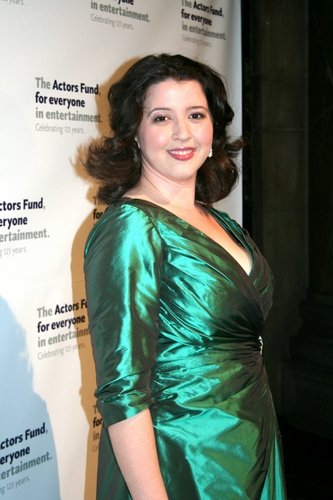From a letter today by Robert Israel of Los Angeles:
‘As an opera designer who has worked at the Bastille and numerous other major opera houses, I have a point of view that is different from those expressed in this article. The quality of a theater should not be judged first and foremost by its architecture. It should first be measured by the sight lines of the audience, the acoustics and the flexibility of the stage. The Opéra Bastille has one of the best-equipped and most flexible stages that I have ever worked on. Its depth is not a hindrance; it is a luxury. One can always reduce the depth and width of a stage, but you cannot make it bigger than its footprint.’

The US-based Canadian violinist Leila Josefowicz has pulled out of Houston performances of the Esa-Pekka Salonen concerto.
Not many soloists have it under their fingers.
Jennifer Koh is flying in.
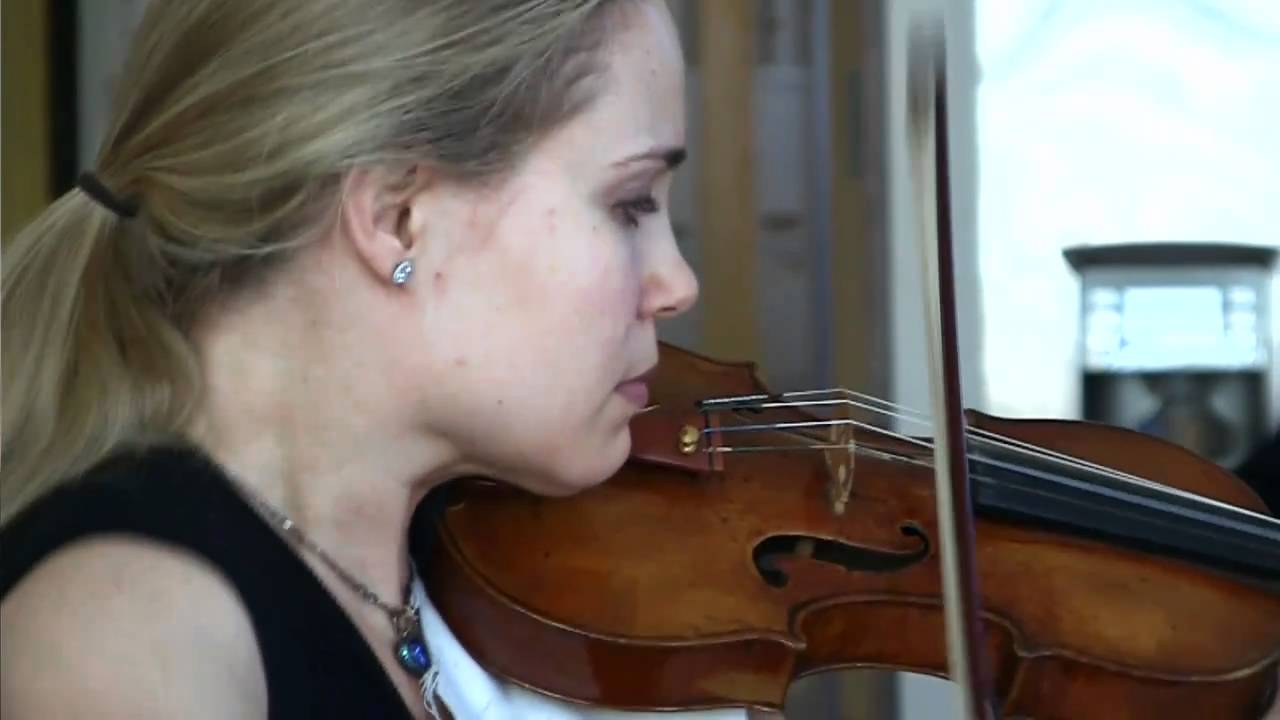
Message received:
As an expression of their gratitude for a long association, the Berliner Philharmoniker welcomed Zubin Mehta as an honorary member of the orchestra today.
Zubin Mehta conducted the Berliner Philharmoniker for the first time in September 1961 in the concert hall of the College of the Arts (today the University of the Arts). Since then, he and the orchestra have presented 172 concerts with 73 programmes in Berlin and on several concert tours, including this week’s concerts with works by Edgard Varèse, Peter Eötvös and Nikolai Rimsky-Korsakov.
In his address, orchestra board member Knut Weber declared: “Your history with the Berliner Philharmoniker is exemplary. No conductor has conducted our orchestra over a longer period of time; hardly any other guest conductor has led the Berliner Philharmoniker more often. Although guest conductor does not go far enough. Your relationship with our orchestra can be described in many ways, but no longer as ‘guest’. Much more as friend, example, artistic advisor, audience favourite and musical authority.”
In addition to Zubin Mehta, the following conductors have been named honorary members of the Berliner Philharmoniker: (in chronological order) Daniel Barenboim, Bernard Haitink, Nikolaus Harnoncourt, Seiji
Ozawa and Mariss Jansons.
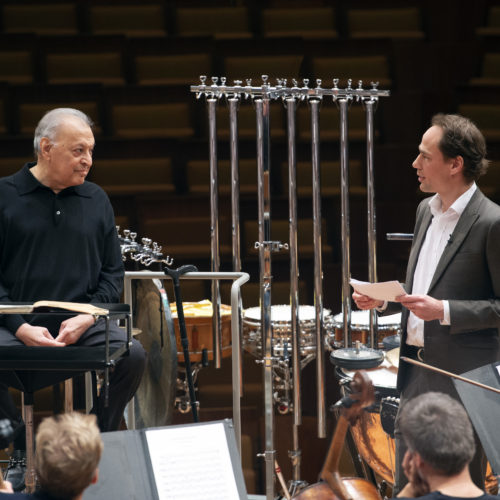
String players were swift to protest when the Strad published a slew of cliches about South Korean kids.
The magazine has taken down the article and issued this retraction:
On Monday, The Strad posted an extract from a new article on string teaching in South Korea on our website. Written by Viktoria Elisabeth Kaunzner, a violinist who has spent many years teaching in South Korea, the article explored the reasons for the recent successes of Korean violinists in string competitions worldwide. For the most part we believe the article is a sensitive and informative piece about music education and life there. However, we wish to apologise for the offence cased by a two-sentence snippet posted on social media, which we accept was misjudged. We also wish to stress that none of the competition-winning artists pictured throughout the article has any personal connection with Kaunzner or her research. We appreciate all comments and messages received in connection with the article and will aim to uphold the high standards expected of us in the future.
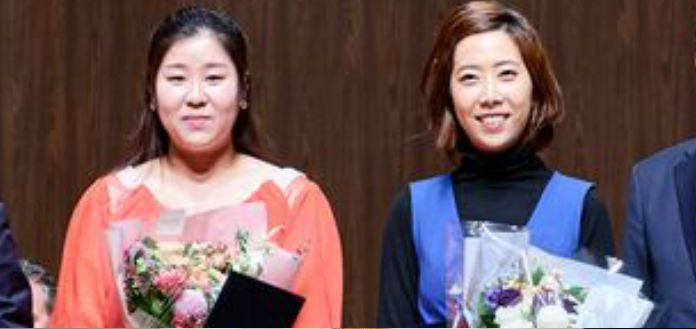
The contest has released the names of its jury chairmen:
• Piano – Denis Matsuev, world-famous Russian pianist and gold medalist of the XI Tchaikovsky Competition
• Violin – Martin Engstroem, Founder & Executive Director of the Verbier Festival
• Cello – Sir Clive Gillinson, Executive and Artistic Director of Carnegie Hall
• Voice – Sarah Billinghurst Solomon, retired Assistant General Manager for Artistic Affairs at the Metropolitan Opera
• Woodwind Instruments – Denis Bouriakov, principal flute of the Los Angeles Philharmonic, Associate of the Royal Academy of Music
• Brass Instruments – Ian Bousfield, former principal trombone of London Symphony and Vienna Philharmonic, Professor at the Royal Academy of Music in London
The contentious choice is the violin chair, Martin Engstroem, who is not a specialist in the instrument but has appointed the Tchaik Competition chairman as music director at his Verbier Festival and is involved with other Putinocrats and oligarchs in founding a festival in Latvia.

State control has also tightened with the appointment of deputy prime minister Olga Golodets as co-chair with Gergiev of the Organizing Committee.
The Deutsche Oper Berlin has announced the death of Ivan Sardi, who sang in a famous recording of Don Giovanni conducted by Ferenc Fricsay.
Budapest born, Sardi sang 36 years with the company.

From John Ferrillo:
I don’t want to go all Facebook on you all, but I simply must share a great joy. Monday, my daughter, Mary, won a position in the viola section of the Boston Symphony.
It would be hard to overstate what a difficult task this is today. Many of you my friends, students and colleagues- have traveled this same, sweat and tear stained path. Besides representing countless hours of hard work, it is a stroke of amazing, grace filled, good fortune. It is also a tribute to Mary’s great heart, character and love of music.
It was Mary’s 22nd audition- her third for the BSO. She had been in 6 previous finals with 5 orchestras. She played three rounds Monday over a twelve hour period. They were screened until the very end, when they had a chamber music trial with four of my colleagues.
The outpouring of affection and support from the orchestra has warmed our hearts.
An interesting parallel- I was exactly- within one month- her age when I won my first orchestra job in San Francisco and it was my 22nd audition as well.
She gets her talent from her mother.
And to you, my students- know how intensely I want this happiness to be yours, as well, in your careers.

An article that appeared yesterday on the Strad magazine’s website and social media is now nowhere to be found online after a rush of reader objections that it contained racist stereotypes.
The article is apparently still due to appear in the next print issue of the magazine.
Written by a German violinist, Viktoria Elizabeth Kauzner, the article was titled ‘Why do South Korean string players do so well at competitions?’
It is full of sweeping genralisations, such as: “… ‘tiger moms’, who videotape lessons and ambitiously review them with their child at home. Some parents of female instrumentalists are working to the agenda of acquiring suitable husbands for their daughters – for just as daughters of the well-to-do in Europe’s patriarchal bourgeoisie societies of the past practised the piano in preparation for becoming accomplished housewives, talented Korean daughters have a better chance of capturing the attention of a ‘good husband’.”
UPDATE: An apology from The Strad
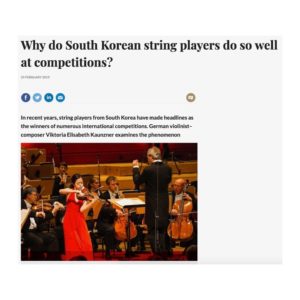
The Washington youth orchestra coach Samuel Thompson was among many protesters:
While I do not know your magazine’s editorial protocol, the fact that this statement was “fit to print” does a grave disservice to the hundreds of Korean musicians who work tirelessly due to their dedication to the craft: furthermore, does the author NOT remember that the great Kyung Wha Chung assured Mr. Galamian that she would NOT give up her career for marriage?
Ms. Chung’s story aside, you have done a tremendous disservice by allowing this statement to be printed, and as the many comments on the article show, a retraction and an apology are definitely in order.
Sonya Yoncheva has cancelled La traviata on March 12, 14 and 17 (as one does).
Her replacement is Angel Blue.
We understand she is La Scala’s first Violetta of colour.

photo Sonya Garza
A 1703 Stradivarius violin owned by the motor manufacturer and Hitler admirer Henry Ford has been given on loan to the associate concert master of the Detroit Symphony Orchestra, Kimberly Kaloyanides Kennedy.
Ford bought several pedigree Italian instruments and played them badly. This one, the ‘Rougemont’, is the pride of the Ford collection. Kennedy payed it for the first time as soloist in the Samuel Barber concerto.
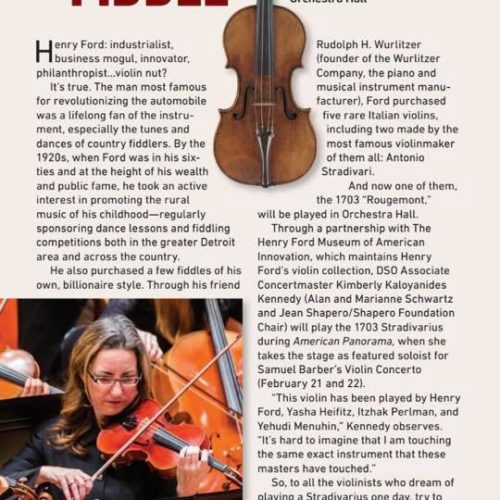
Following his extraordinary performance of William Schuman’s ninth symphony, the Chicago maestro is now planning more.
Chicago has sent us a list of American works – including the Schuman Symphony – that Maestro Muti has performed or is about to perform with the CSO. Next season he will lead a new work by American composer in residence Missy Mazzoli.
Here’s the rep:
ADAMS* many words of love
BATES Alternative Energy
BATES Anthology of Fantastic Zoology
BATES The B-Sides, Five Pieces for Orchestra and Electronica
BENSHOOF Concerto in Three Movements for Piccolo and Orchestra – to be performed in March 2019
COPLAND Lincoln Portrait
CORIGLIANO Campane di Ravello
GERSHWIN An American in Paris
HIGDON Low Brass Concerto
OGONEK All These Lighted Things
RAIMI Three Lisel Mueller Settings
SCHUMAN Symphony No. 9 (Le fosse Ardeatine)
STEPHENSON Bass Trombone Concerto – to be performed in June 2019
WALKER Lyric for Strings
*Samuel Adams

The Cuban-American soprano has been speaking out on a subject close to her heart:
‘That wall is against my people. Building a wall to protect whites from Latinos is racist, of course. My family came to the United States by sea. We were refugees. Racism and actions against immigration both in the United States and in Europe are incomprehensible. I think it’s important that immigrants arrive in developed countries; they represent, in many cases, the future because … with their effort and taxes they contribute in a crucial way to the wealth of the countries to which they emigrate. They are culture, ideas and wealth. Closing borders like that is crazy….
Ese muro va en contra de mi gente. Construir un muro para proteger a los blancos de los latinos es racista, por supuesto. Mi familia llegó a Estados Unidos por mar. Fuimos refugiados. El racismo y las actuaciones en contra de la inmigración tanto en Estados Unidos como en Europa son incomprensibles. Creo que es importante que lleguen inmigrantes a los países desarrollados; ellos significan, en muchos casos, el futuro por cuestiones de natalidad y porque con su esfuerzo e impuestos contribuyen de una manera crucial a la riqueza de los países a los que emigran. Ellos son Cultura, ideas y riqueza. Cerrar las fronteras de esa manera es una locura.
Read on here.
